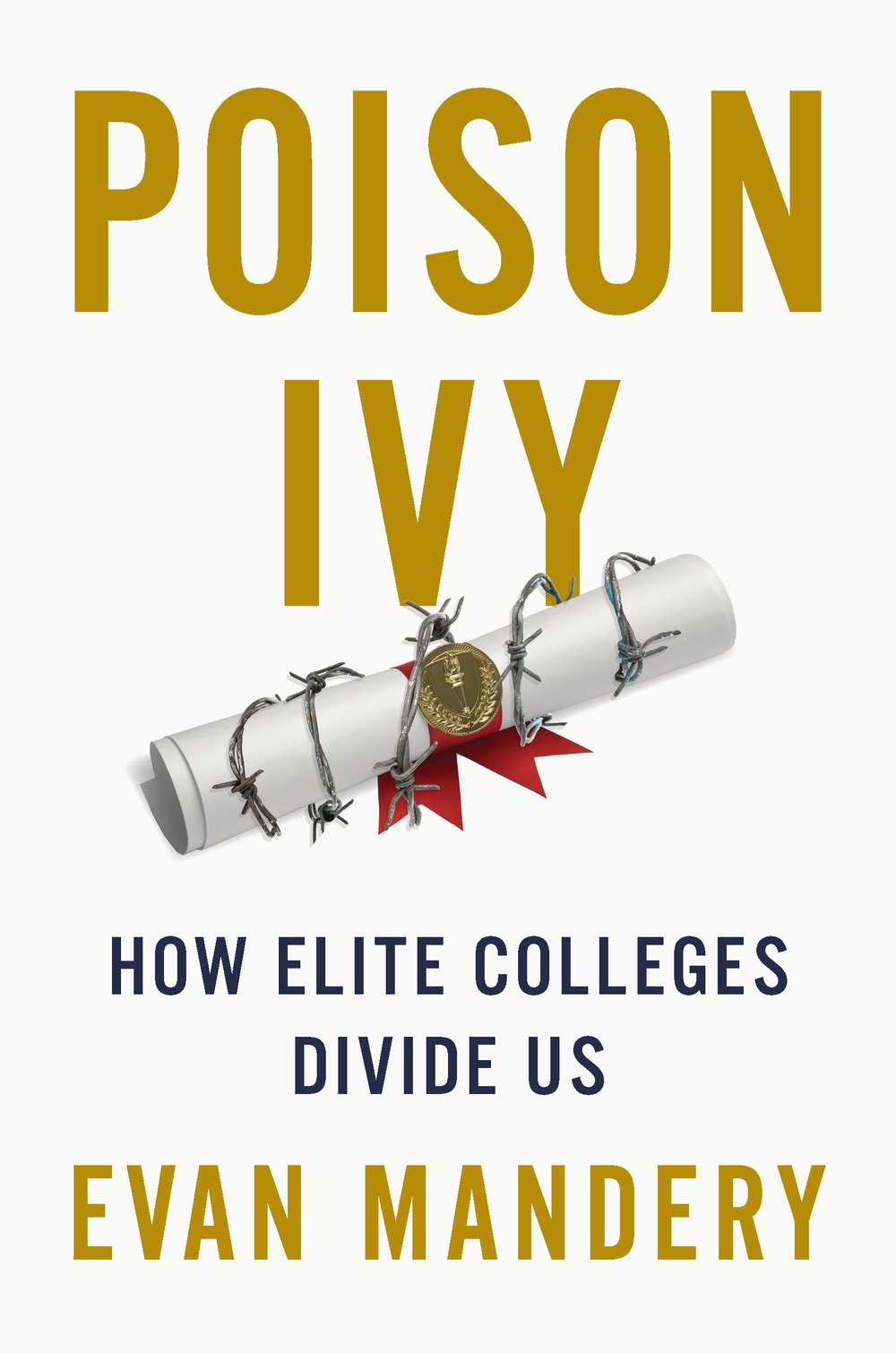Poison Ivy
How Elite Colleges Divide Us

An eye-opening look at how America’s elite colleges and suburbs help keep the rich rich—making it harder than ever to fight the inequality dividing us
Hailed as a “staggering portrait of inequality in America” (Philip Dray) Poison Ivy tells the bigger, seedier story of how elite colleges create paths to admission available only to the wealthy, despite rhetoric to the contrary. In a “lively and trenchant” (Washington Monthly) account, Evan Mandery reveals how tacit agreements between exclusive “Ivy-plus” schools and white affluent suburbs create widespread de facto segregation. And as a college degree continues to be the surest route to upward mobility, the inequality bred in our broken higher education system is now a principal driver of skyrocketing income inequality everywhere. Mandery—a Harvard graduate and current professor at a public college that serves low- and middle-income students—contrasts the lip service paid to “opportunity” by so many elite colleges and universities with schools that actually walk the walk.
Poison Ivy is a “no-holds-barred takedown” (Forbes) that synthesizes fascinating insider information on everything from how students are evaluated, unfair tax breaks, and questionable fundraising practices to suburban rituals, testing, tutoring, tuition schemes, and more. This bold, provocative indictment of America’s elite colleges shows us exactly what’s at stake—and what will be possible if we muster the collective will to transform it.

An Emmy and Peabody Award winner, Evan Mandery is a professor at the City University of New York. He has written for the New York Times and Politico and has appeared on The Today Show, CNN, and NPR’s Fresh Air. His journey as a Harvard alum publicly challenging legacy admissions at elite schools led him to write Poison Ivy: How Elite Colleges Divide Us (The New Press). He lives in Montclair, New Jersey.
